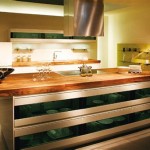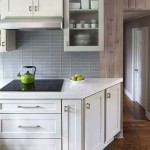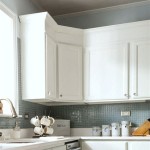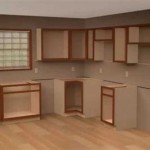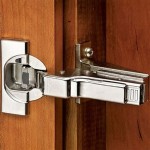How Much Does An Average Kitchen Cost To Remodel?
Remodeling a kitchen represents a significant investment for most homeowners. Estimating the cost accurately is crucial for budgeting purposes and to avoid financial surprises during the project. The average cost of a kitchen remodel can vary widely depending on numerous factors, making it essential to understand the key elements that influence the final price. This article aims to provide a comprehensive overview of the average cost of a kitchen remodel, outlining the factors that contribute to the overall expense and offering insights into potential cost-saving strategies.
National averages for kitchen remodeling projects fall within a broad range. Minor cosmetic upgrades can cost as little as $5,000 to $10,000, while high-end, complete kitchen overhauls can easily exceed $100,000 or more. The "average" kitchen remodel, encompassing a moderate level of renovation and material selection, typically ranges from $25,000 to $50,000. This figure serves as a general benchmark, but it is vital to recognize that the actual cost will vary depending on the scope of the project, the quality of materials, and the regional location.
Key Point 1: Factors Influencing Kitchen Remodeling Costs
Several factors directly impact the overall cost of a kitchen remodel. These factors can be broadly categorized, helping homeowners understand where their money is being allocated.
Scope of the Project: The extent of the remodel is a primary driver of cost. A simple refresh, such as painting cabinets, replacing hardware, and installing a new backsplash, will naturally be less expensive than a complete demolition and reconstruction of the space. Projects involving significant structural changes, such as moving walls or relocating plumbing and electrical lines, will inherently incur higher costs due to increased labor and material requirements.
Materials and Finishes: The selection of materials and finishes plays a significant role in determining the project's overall cost. High-end materials, such as custom cabinetry, natural stone countertops (e.g., granite or marble), and premium appliances, will significantly increase the budget compared to more budget-friendly alternatives like stock cabinets, laminate countertops, and standard appliances. Similarly, the choice of flooring, backsplash tiles, and lighting fixtures will contribute to the overall cost.
Labor Costs: Labor costs represent a substantial portion of the kitchen remodeling budget. These costs encompass the fees paid to contractors, electricians, plumbers, carpenters, and other skilled tradespeople involved in the project. Labor rates vary depending on the region, the contractor's experience and expertise, and the complexity of the work. Obtaining multiple quotes from qualified contractors is essential to ensure competitive pricing and to gain a clear understanding of the labor costs associated with the project.
Location: Geographical location significantly influences remodeling costs. Areas with a high cost of living, such as major metropolitan cities, typically have higher labor rates and material prices compared to more rural or suburban areas. Obtaining quotes from local contractors and suppliers is crucial to accurately reflect the prevailing market rates in the specific area.
Appliances: The appliances chosen for the kitchen significantly impact the overall cost. Entry-level appliances cost significantly less than professional-grade or smart appliances. Considerations include refrigerators, ovens, cooktops, dishwashers, microwaves, and ventilation hoods. Each appliance contributes to the total expense, and the selection should align with the homeowner's needs and budget.
Cabinetry: Cabinetry is often the single most expensive component of a kitchen remodel. The cost of cabinets depends on the type (stock, semi-custom, or custom), the material (wood, laminate, or metal), and the finish. Stock cabinets offer a budget-friendly option, while custom cabinets provide greater design flexibility but come at a higher price point. The size and layout of the kitchen also influence the total cabinet cost.
Countertops: Countertop materials vary widely in price. Laminate countertops are the most affordable option, followed by solid surface materials like acrylic. Natural stone countertops, such as granite, marble, and quartz, are more expensive but offer enhanced durability and aesthetics. The countertop material selected significantly impacts the overall remodeling cost.
Key Point 2: Breakdown of Kitchen Remodeling Expenses
Understanding how the remodeling budget is typically allocated can provide valuable insights into cost management. While the exact percentages may vary based on the specific project, the following breakdown offers a general guideline:
Cabinetry and Hardware: 25% - 35% of the total budget is allocated to cabinetry and hardware. This includes the cost of the cabinets themselves, as well as the handles, knobs, hinges, and other hardware components.
Labor: 20% - 30% of the budget goes towards labor costs. This encompasses the fees paid to contractors, electricians, plumbers, and other skilled tradespeople.
Appliances: 15% - 20% of the budget is dedicated to appliances. This includes the cost of the refrigerator, oven, cooktop, dishwasher, microwave, and ventilation hood.
Countertops: 10% - 15% of the budget is allocated to countertops. This includes the cost of the countertop material, fabrication, and installation.
Flooring: 5% - 10% of the budget is spent on flooring. This includes the cost of the flooring material and installation.
Backsplash: 3% - 7% of the budget is dedicated to backsplash. This includes the cost of the backsplash tiles and installation.
Lighting: 3% - 5% of the budget is allocated to lighting. This includes the cost of the lighting fixtures and installation.
Plumbing: 2% - 4% of the budget is spent on plumbing. This includes the cost of new fixtures and any necessary plumbing work.
Electrical: 2% - 4% of the budget is allocated to electrical work. This includes the cost of new outlets, wiring, and any necessary electrical upgrades.
Miscellaneous: 5% - 10% of the budget should be set aside for miscellaneous expenses, such as permits, demolition, waste disposal, and unforeseen issues that may arise during the project.
Key Point 3: Strategies for Managing Kitchen Remodeling Costs
There are several strategies homeowners can employ to manage kitchen remodeling costs effectively without sacrificing quality or functionality.
Prioritize Needs vs. Wants: Carefully assess the existing kitchen to identify areas that require improvement and those that can remain unchanged. Distinguish between essential needs, such as functional appliances and adequate storage, and desired upgrades, such as high-end finishes or luxury features. Prioritizing needs over wants can help to reduce the overall budget.
Explore Alternative Materials: Consider using alternative materials that offer similar aesthetics and functionality at a lower price point. For example, laminate countertops can mimic the look of natural stone at a fraction of the cost. Similarly, engineered wood flooring can provide the appearance of hardwood flooring at a more affordable price.
Reface Cabinets Instead of Replacing: If the existing cabinet boxes are in good condition, refacing them can be a cost-effective alternative to replacing them entirely. Refacing involves replacing the cabinet doors and drawer fronts, as well as applying a new veneer to the cabinet boxes. This can significantly reduce the cost of cabinetry while still achieving a refreshed look.
DIY Some of the Work: Homeowners with basic DIY skills can save money by handling some of the less complex tasks themselves, such as painting, installing backsplash tiles, or replacing hardware. However, it is crucial to avoid attempting tasks that require specialized skills or knowledge, such as electrical or plumbing work, as this can lead to safety hazards and costly mistakes.
Obtain Multiple Quotes: Obtaining multiple quotes from qualified contractors is essential to ensure competitive pricing and to gain a clear understanding of the labor costs associated with the project. Compare the quotes carefully, paying attention to the scope of work included, the materials specified, and the payment schedule. Check references and reviews to ensure the contractor has a proven track record of quality workmanship and customer satisfaction.
Plan the Layout Carefully: The layout of the kitchen significantly impacts the cost of the remodel. Making significant changes to the layout, such as moving walls or relocating plumbing and electrical lines, will increase the budget. Consider working with a kitchen designer to optimize the layout and minimize the need for costly structural changes.
Avoid Moving Plumbing or Electrical Lines: Relocating plumbing or electrical lines can be expensive and time-consuming. If possible, try to maintain the existing locations of these utilities to minimize the associated costs. This may require making compromises in the layout, but it can significantly reduce the overall budget.
Shop for Sales and Discounts: Keep an eye out for sales and discounts on appliances, materials, and fixtures. Many retailers offer seasonal promotions or clearance sales that can help to save money. Consider purchasing items in bulk to take advantage of volume discounts.
The cost of an average kitchen remodel is a multifaceted issue, impacted by numerous variables. By understanding these factors and implementing effective cost-saving strategies, homeowners can approach their kitchen remodeling projects with a realistic budget and a plan to manage expenses effectively. Careful planning, informed decision-making concerning materials and labor, and a clear understanding of priorities are all essential to achieving a successful and affordable kitchen renovation.

Kitchen Remodeling Cost Guide 2024 Sweeten Com

How Much Does A Kitchen Remodel Cost Crystal Bath

Kitchen Remodeling Costs Process Deerfield Beach Pompano Fl

The Cost Of A Kitchen Remodel Understanding Your Budget

Average Cost Of A Kitchen Remodel Los Angeles Build Method Construction

What Is The Average Cost To Remodel A Kitchen

How Much Does A Kitchen Remodel Cost Forbes Home

How Much Does A Kitchen Remodel Cost 2024 Average

Kitchen Remodel Costs Cosmetic Remove Replace

Kitchen Remodel Cost Guide Where To Spend And Save
Related Posts

